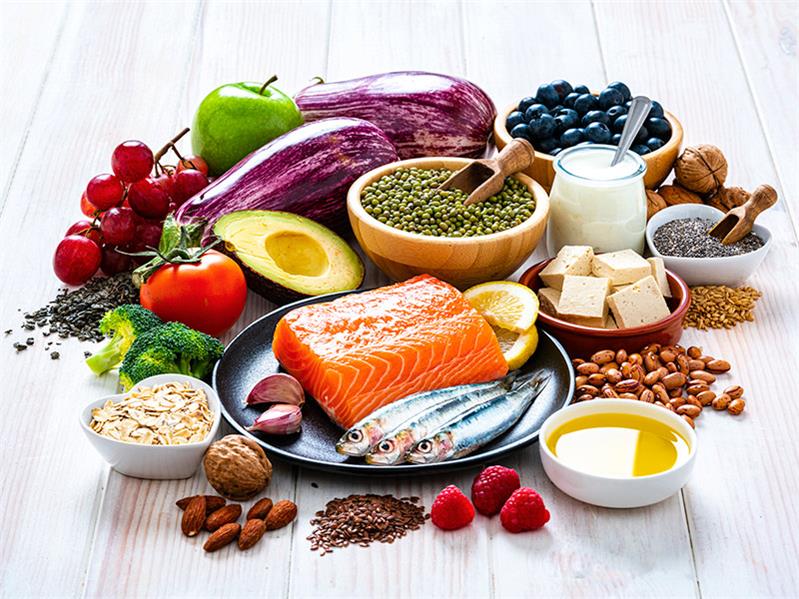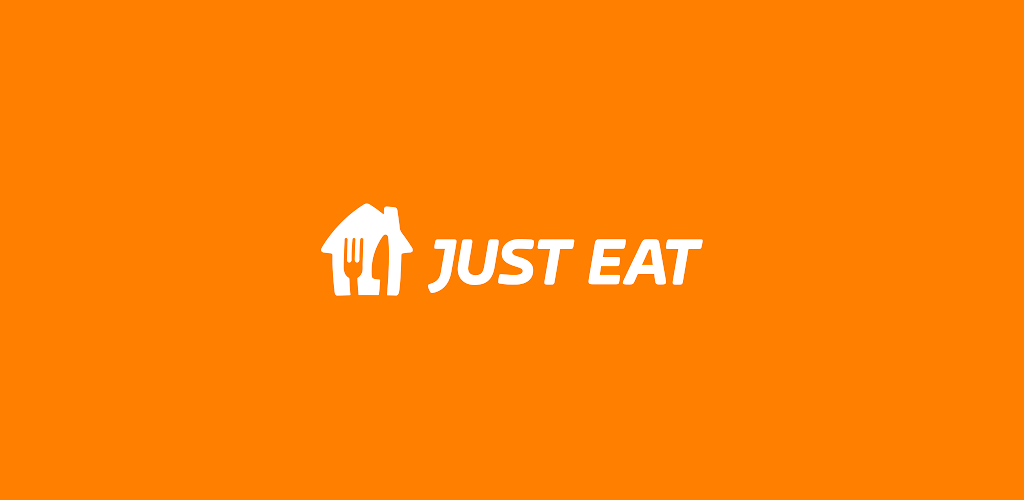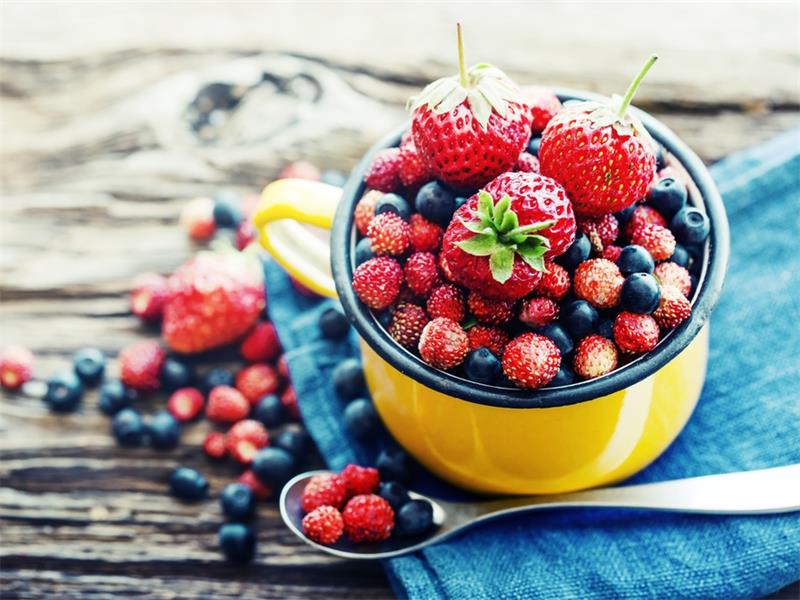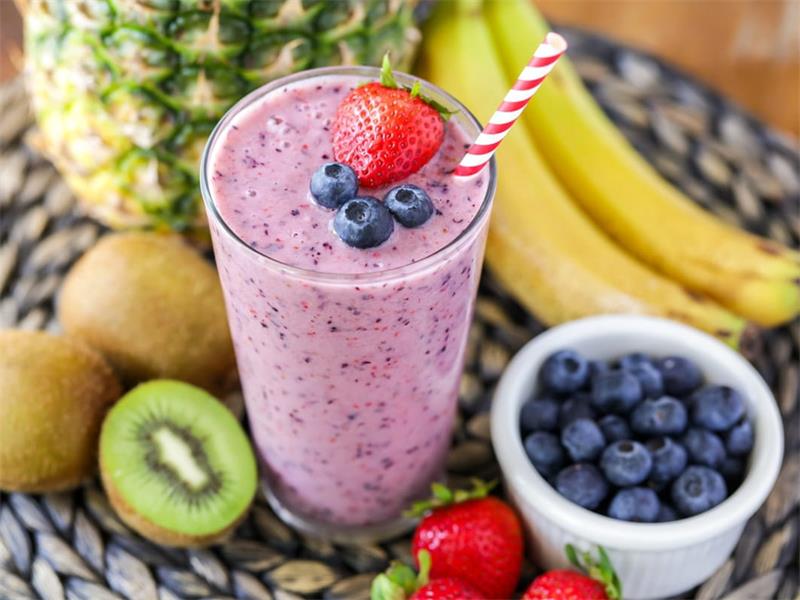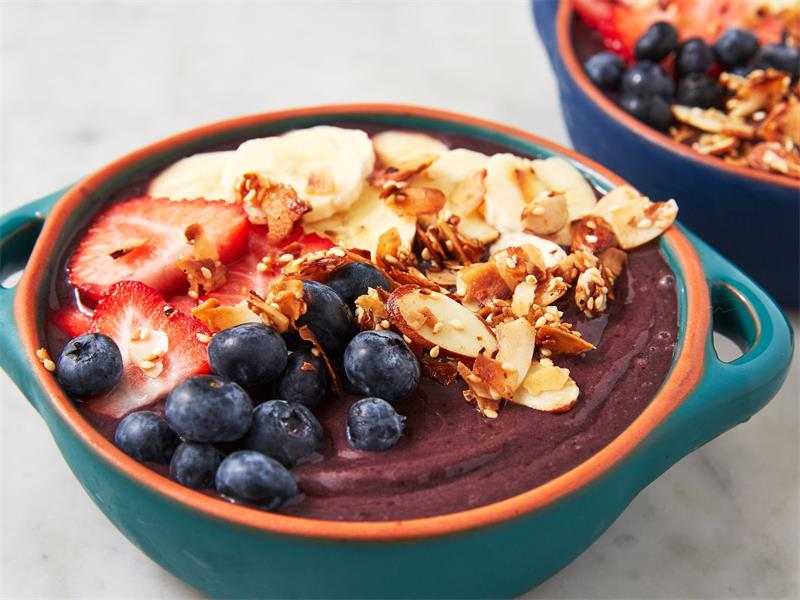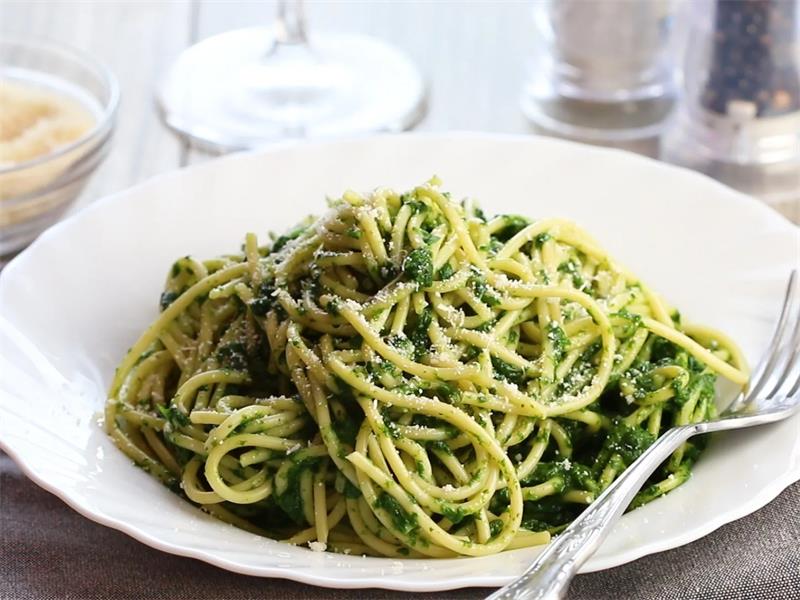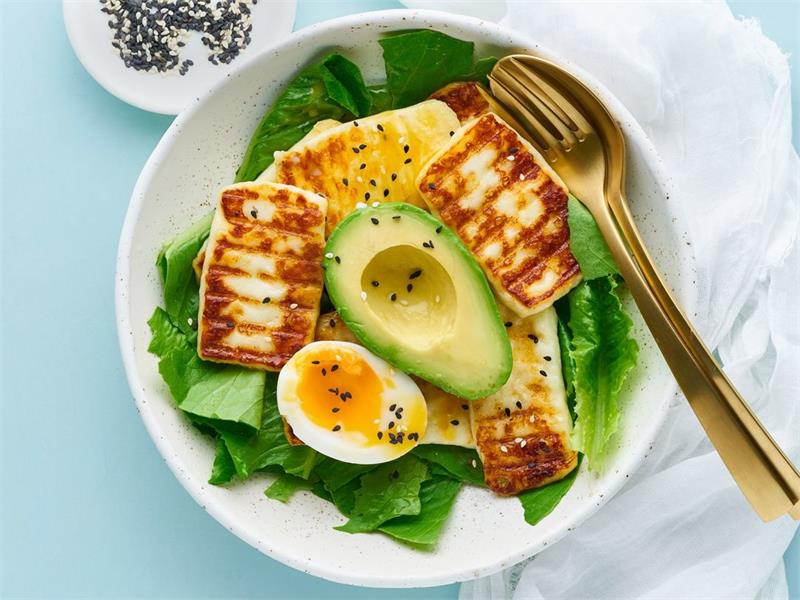Contents
Introduction
When it comes to maintaining good health, essential vitamins and minerals play a crucial role. These nutrients are important for a variety of bodily functions, from supporting the immune system to aiding in digestion and energy production. Yet many people struggle to get enough of these important nutrients in their diets.
In this article, we’ll take a closer look at how you can ensure you’re getting enough essential vitamins and minerals in your diet. We’ll cover everything from the best food sources for these nutrients to cooking techniques that preserve their nutritional value.
The Importance of Essential Vitamins and Minerals
Essential vitamins and minerals are nutrients that our bodies require but cannot produce on their own. This means that we need to obtain them from our diets or through supplements. Vitamins and minerals play a key role in maintaining good health.
For example, vitamin C is important for immune function and wound healing, while calcium is essential for strong bones and teeth. Iron is necessary for oxygen transport throughout the body, while magnesium helps regulate muscle and nerve function.
When we don’t get enough of these vital nutrients, it can lead to deficiencies that have serious consequences. For instance, a lack of vitamin D can lead to weak bones (osteoporosis) or an increased risk of infections such as colds or flu.
The Importance of Essential Vitamins and Minerals in Your Diet
When it comes to maintaining good health, there are few things more important than getting enough essential vitamins and minerals in your diet. These vital nutrients play a crucial role in keeping our bodies functioning properly, from supporting the immune system to aiding in digestion to promoting healthy skin and hair.
However, many of us struggle to consume enough of these important substances, which can lead to a range of health problems over time. So what exactly are these essential vitamins and minerals?
At a high level, they can be broken down into two categories: fat-soluble and water-soluble. Fat-soluble vitamins include A, D, E, and K, while water-soluble vitamins include B-complex vitamins (such as B1 or thiamine), vitamin C, folate (also known as folic acid), and others.
Minerals include substances like calcium, iron, magnesium, potassium, sodium (yes – sodium is actually an essential mineral!), and zinc. Each of these vitamins and minerals plays a specific role in the body.
Vitamin A is critical for eye health; vitamin C aids in wound healing; vitamin D promotes strong bones; iron helps transport oxygen through the bloodstream; calcium is important for bone density; potassium supports heart function…the list goes on! Suffice it to say that each nutrient is vital for maintaining overall good health.
Fat-Soluble Vitamins
Fat-soluble vitamins are so-called because they dissolve in fat rather than water. This means they are typically stored in fatty tissues within the body rather than being excreted quickly through urine like their water-soluble counterparts.
While this can be beneficial since it means you don’t need to consume them as frequently to maintain sufficient levels within your body’s stores over time – it also means that consuming too much of these fat-soluble vitamins can lead to toxic buildup. Vitamin A is one of the most well-known fat-soluble vitamins, and it’s critical for a number of functions within the body.
In addition to promoting healthy vision, vitamin A plays an important role in immune function and skin health. Vitamin E, meanwhile, is an antioxidant that helps protect your cells from damage caused by free radicals (which are produced naturally as part of your body’s everyday metabolic processes).
Water-Soluble Vitamins
Unlike their fat-soluble counterparts, water-soluble vitamins dissolve in water and therefore cannot be stored as easily within the body. This means you need to consume them more regularly to avoid deficiencies – but it also means that there is less risk of toxicity from consuming too much of these vitamins. One of the most well-known water-soluble vitamins is vitamin C – which many people associate with citrus fruits like oranges and lemons.
However, there are plenty of other sources for this important nutrient as well, including strawberries, broccoli, kale, and bell peppers. Folate (also known as folic acid) is another important water-soluble vitamin that is critical for brain function and fetal development during pregnancy – making it particularly important for pregnant women or those trying to conceive.
Minerals
– minerals are critical substances that play a wide range of roles within the body. Calcium is perhaps one of the best-known minerals since it’s required for strong bones; however, it also plays a role in muscle contractions and nerve signaling as well!
Iron is another critical mineral that helps transport oxygen through the bloodstream – with deficiency often causing fatigue or even anemia over time. Potassium helps regulate blood pressure while magnesium has been shown to play a role in everything from protein synthesis to heart health!
Eating a Variety of Fruits and Vegetables
The Best Sources of Vitamin C, A, K, B6, Folate, Potassium, Magnesium, etc.
When it comes to getting essential vitamins and minerals in your diet, there’s no better place to start than with fruits and vegetables. These colorful foods are packed with nutrients that are essential for good health.
Here are some of the best sources of key vitamins and minerals: Vitamin C: Citrus fruits like oranges and grapefruits are well-known sources of vitamin C. However, you can also find this important nutrient in other fruits like kiwi, strawberries, mangoes and papayas.
Vegetables such as tomatoes, bell peppers and spinach also contain vitamin C. Vitamin A: This nutrient is crucial for maintaining healthy eyesight.
Sweet potatoes are an excellent source of vitamin A – one medium-sized sweet potato contains 438% of the daily recommended intake! Carrots, pumpkin and butternut squash are also great options.
Vitamin K: Leafy greens such as kale, spinach and collard greens provide ample amounts of vitamin K. This nutrient is important for bone health as it helps the body absorb calcium. B6: This B vitamin is important for brain function as well as helping the body produce red blood cells.
Bananas are a great source – a medium-sized banana has about 20% of your daily requirement. Other good sources include avocados (which also contain heart-healthy monounsaturated fats), sweet potatoes and spinach.
Folate: Also known as folic acid or vitamin B9 – is key during pregnancy to prevent certain birth defects. You can find folate in leafy greens (spinach again!), broccoli, oranges and lentils.
Potassium: Bananas once again come through in providing potassium – just one medium-sized banana has around 400mg of potassium. Other good sources include sweet potatoes, avocados and leafy greens.
Magnesium: This mineral is important for over 300 processes in the body, including regulating muscle and nerve function. Dark chocolate (hooray!), almonds, spinach and avocado are all good sources of magnesium.
Incorporating Whole Grains
Whole grains have more nutrients than refined grains. They contain fiber which aids digestion and also helps you feel full for longer periods of time – that’s why whole grain foods like oatmeal are often recommended as a breakfast food.
In addition to fiber, whole grains also contain iron. Here are some of the best sources:
Fiber: Whole wheat bread, brown rice, quinoa and oatmeal are all great sources of fiber. Iron: Look for iron-fortified cereals or add pumpkin seeds or sunflower seeds to your morning yogurt or smoothie bowls.
Adding Lean Proteins
Proteins help build muscle mass and aid in recovery after workouts. However, it’s important to choose lean proteins that aren’t loaded with saturated fat.
Here are some examples: Vitamin B12: This vitamin is found primarily in animal products so it’s important for vegetarians/vegans to consider supplementation or fortified foods like tofu or soy milk.
Lean proteins: Skinless chicken breasts, turkey breasts without skin, fish like salmon and tuna (both rich in omega-3 fatty acids), and legumes like lentils or beans are all great options. Vitamin D: While it’s primarily known as the “sunshine vitamin”, you can actually find vitamin D in limited amounts within certain species of fish (canned tuna fish), mushrooms exposed to UV lights, fortified milk alternatives, etc.
Including Dairy or Non-Dairy Alternatives
Calcium is important for strong bones – but not everyone can tolerate or consume milk products. If you’re avoiding dairy, here are some other good sources of calcium and vitamin D: Calcium: Sardines, canned salmon (with bones), kale, almonds and tofu all have high amounts of calcium.
Vitamin D: Canned tuna fish, mushrooms exposed to UV lights, fortified milk alternatives like soy or almond milk, etc. Remember that getting enough essential vitamins and minerals in your diet involves variety – try to eat a mix of foods from each food group throughout the week.
Tips for Maximizing Nutrient Absorption
Getting enough essential vitamins and minerals in your diet is just the first step. To truly benefit from these nutrients, you also need to consider how you’re preparing your food and what you’re eating it with. Here are some tips for maximizing nutrient absorption:
Cooking Techniques that Preserve Nutrients
The way you cook your food can have a big impact on its nutrient content. Some cooking methods can cause vitamins and minerals to break down or leach out of the food, while others can actually enhance nutrient absorption. For example, boiling vegetables can cause up to 50% of their vitamin C content to be lost!
Steaming is a much better option, as it helps retain more of the nutrients. Grilling and frying are popular cooking methods, but they’re not always the healthiest choices.
When meat is cooked at high temperatures like this, it forms compounds called heterocyclic amines (HCAs) and polycyclic aromatic hydrocarbons (PAHs), which have been linked to cancer. Instead of grilling or frying meat, try baking or broiling it instead.
Pairing Certain Foods Together to Increase Absorption
Did you know that some nutrients are better absorbed when eaten with certain other foods? For example, vitamin C can increase iron absorption from plant-based foods like spinach and lentils. So if you’re making a salad with spinach as the base, be sure to add some bell peppers or citrus fruits like oranges or grapefruits to help your body absorb the iron.
Calcium is another nutrient that requires some strategic pairing. It’s best absorbed when consumed alongside vitamin D-rich foods like salmon or egg yolks.
If you’re not a fan of fish or eggs, try incorporating fortified milk alternatives into your diet instead. Getting enough essential vitamins and minerals in your diet is crucial for maintaining good health.
But it’s not just about what you eat – it’s also about how you prepare your food and what you pair it with. By following these tips for maximizing nutrient absorption, you’ll be well on your way to feeling your best!
Niche Subtopics on Specific Vitamins and Minerals
Importance of Omega 3 Fatty Acids for Brain Health
Omega-3 fatty acids are essential fats that our bodies cannot produce on their own, so we need to get them from our diet. These healthy fats are crucial for maintaining brain health and function.
Studies have shown that people who consume more omega-3s have a lower risk of developing dementia and other cognitive impairments as they age. The two main types of omega-3s found in food are EPA (eicosapentaenoic acid) and DHA (docosahexaenoic acid).
The best dietary sources come from fatty fish like salmon, tuna, mackerel, and sardines. For those who don’t eat fish or dislike the taste, flaxseed oil or chia seeds are also good sources of omega-3s.
It’s important to note that not all omega-3 supplements are created equal. It’s best to opt for a high-quality fish oil supplement that has been tested for purity and potency to ensure you’re getting the most benefit.
Subtopic: Sources such as Salmon and Flaxseed Oil
Salmon is one of the best sources of omega-3 fatty acids with one fillet providing around 1.5 grams of EPA/DHA combined. Wild-caught salmon is generally considered healthier than farmed salmon due to its higher nutrient content and lower levels of contaminants.
Flaxseed oil is an excellent vegetarian source of omega 3s with one tablespoon providing around 7 grams of alpha-linolenic acid (ALA), which the body can convert into EPA/DHA although less efficiently than consuming them directly from fish or supplements. Flaxseed oil should always be stored in the fridge as it can go rancid quickly if exposed to light or heat.
Conclusion
Ensuring you’re getting enough essential vitamins and minerals in your diet is crucial for maintaining good health. Eating a variety of nutrient-dense whole foods is the best way to get all the nutrients your body needs. Aim to incorporate a variety of fruits, vegetables, whole grains, lean proteins, and dairy/non-dairy alternatives into your meals.
While supplements can be useful for filling in nutrient gaps, they should never replace whole foods as they don’t contain all the beneficial compounds found in food. Remember that good nutrition is just one piece of the puzzle when it comes to living a healthy life – regular exercise, stress management, and adequate sleep are also important for overall well-being.

